Robotics and Automation Society
Industry Forum

“I really like the industry forum because it gives everyone a chance to see both present issues and future possibilities under the same roof. I also like that it encourages industry folks to open up more, on top of the diverse program you put together.”
P. Thienphrapa, Phillips Research
About
Date: Monday May 20, 2019
Duration: 10:45 – 17:30
Room: Room 518ab
Organizers: Toshio Fukuda, Dominik Bösl, Tamás Haidegger
Expected headcount: 100
The recurring ICRA Industry Forum is a showcase of successful robotics and AI based businesses from across the globe, featuring renowned entrepreneurs talking about their successes and failures, business models, market potentials and technology trends. It is open to all attendees of ICRA, particularly interesting for those aspiring robotics and AI entrepreneur career.
This year again, the program includes three key tracks: traditional Industry Forum, Robotics Innovation & Entrepreneurship (RIE) Forum and the IERA Awards.
The IERA Award session will highlight and honor the achievements of inventors and whose ideas translate into world-class products. The award is jointly sponsored by the IEEE Robotics and Automation Society (IEEE/RAS) and the International Federation of Robotics (IFR).
10:45 Welcome greetings and opening speech: “Successful Consumer Robotics beyond Science Fiction” (Dominik Bösl, IEEE RAS/Festo)
11:05-12:00 Session 1
11:05 – 11:30: Keynote 1: “Building Together from Lab to Market” (Juliana Lim, SGInnovate)
11:30 – 12:00: Keynote 2: “Robots to the market” (David Dubois, Kinova)
12:00-13:30 Lunch break
13:30-15:45 Session 2
13:30-13:40: Opening of the IERA Award finals (Dominik Bösl)
13:40 – 14:40: Four IERA Award finalist pitches (10 min pitch + 5 min Q&A): BOR UV Disinfection Robot; Neo 3D Camera; MIR application; ABB OmniCore
14:40 – 15:10: Keynote 3 (Hisashi Sugiura, Yanmar Co.)
15:10 – 15:45: Industry contributions 1 (short talks and poster teasers)
15:45-16:15 Coffee break + poster session
16:15-17:30 Session 3
16:15 – 16:45: Keynote 4 (Robert Zhang, CloudMinds Technology Inc.)
16:45 – 17:15: Panel Discussion on Translational Research pro & cons and Industrial Experience
17:15 – 17:30: Industry contributions 2 (short talks and poster teasers)
All breaks are served in the exhibit hall which is located in room 220.
Speaker Info
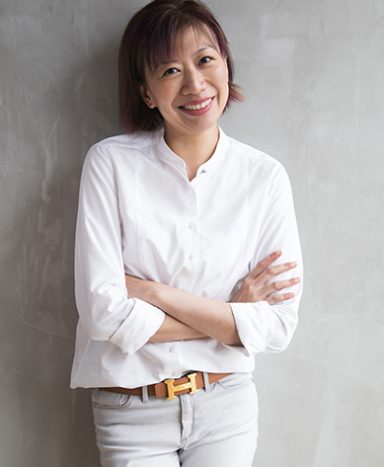
As Head, Talent Networking, Juliana tackles the same challenges surrounding tech talent that many companies and industries face but approaches them differently. She leads SGInnovate’s work in strengthening individuals’ capabilities in the deep tech space, building a strong mentors & multipliers network, as well as in expanding the talent marketplace, where ambitious and capable people and high-potential startups can seek each other out.
Working with like-minded partners such as large corporates and institutes of higher learning, Juliana and her team have executed various learning and development programmes that have benefitted more than 400 deep tech talent in AI and Blockchain. In building the deep tech talent network, she is focused on three main areas – targetting new pipelines, increasing touchpoints and attracting talent to startups.
Under her leadership, the team has also put together the first-ever deep-tech-focused apprenticeship initiative – the Summation Programme. A curated pool of students will partner experienced software and engineering professionals to embark on innovative projects focusing on areas such as artificial intelligence, machine learning, deep learning and blockchain.
She has also successfully launched the by-invite-only Sundown Drinks series, where industry experts, entrepreneurs and technical practitioners gather to discuss and debate on important and trending topics such as “Looking Beyond ICOs”; “Future of Automation”; and “Pushing the Boundaries of Biomedical Tech”.
Prior to joining SGInnovate, Juliana had been in various roles across the Human Resource function in organisations such as SP Group, NTUC First Campus (NFC), the National Heritage Board, Central Provident Fund Board and the Ministry of Education. She has led teams in talent attraction, benefits and rewards, learning and development and business partnering.
Juliana has a Bachelor of Economics (1st Class Hons) from Murdoch University and a Master in Strategic Human Resource Management from the University of New South Wales.
Title:
Building Together from Lab to Market
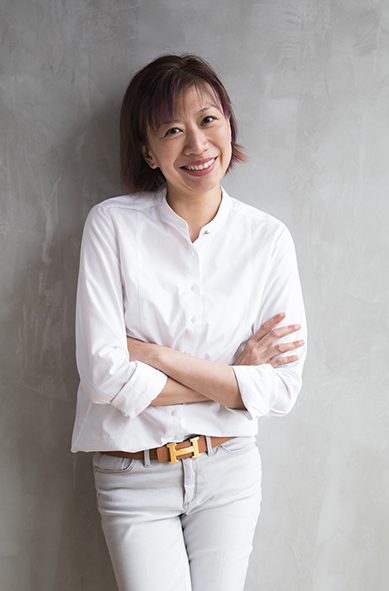
As Head, Talent Networking, Juliana tackles the same challenges surrounding tech talent that many companies and industries face but approaches them differently. She leads SGInnovate’s work in strengthening individuals’ capabilities in the deep tech space, building a strong mentors & multipliers network, as well as in expanding the talent marketplace, where ambitious and capable people and high-potential startups can seek each other out.
Working with like-minded partners such as large corporates and institutes of higher learning, Juliana and her team have executed various learning and development programmes that have benefitted more than 400 deep tech talent in AI and Blockchain. In building the deep tech talent network, she is focused on three main areas – targetting new pipelines, increasing touchpoints and attracting talent to startups.
Under her leadership, the team has also put together the first-ever deep-tech-focused apprenticeship initiative – the Summation Programme. A curated pool of students will partner experienced software and engineering professionals to embark on innovative projects focusing on areas such as artificial intelligence, machine learning, deep learning and blockchain.
She has also successfully launched the by-invite-only Sundown Drinks series, where industry experts, entrepreneurs and technical practitioners gather to discuss and debate on important and trending topics such as “Looking Beyond ICOs”; “Future of Automation”; and “Pushing the Boundaries of Biomedical Tech”.
Prior to joining SGInnovate, Juliana had been in various roles across the Human Resource function in organisations such as SP Group, NTUC First Campus (NFC), the National Heritage Board, Central Provident Fund Board and the Ministry of Education. She has led teams in talent attraction, benefits and rewards, learning and development and business partnering.
Juliana has a Bachelor of Economics (1st Class Hons) from Murdoch University and a Master in Strategic Human Resource Management from the University of New South Wales.
Title:
Building Together from Lab to Market
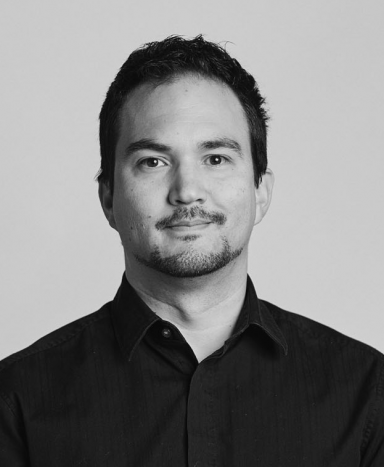
David Dubois is currently the head of business development for the research
industry at Kinova. He holds a bachelor of electrical engineering degree
(2007), a master's degree (2010) and a Ph. D. (2014) of automated
production engineering all from École de technologie supérieure. He is a
member of Ordre des ingénieurs du Québec, IEEE and SPIE and presented his
work in numerous international conferences from these and other
organizations. Since February 2018, he is also an active member of the
Canadian SMC for the ISO IEC JTC 1 SC 42 - Artificial intelligence
standardization effort. He was recently nominated as external liaison
officer from ISO IEC JTC 1 SC 42 to ISO TC 299 - Robotics.
His research interests include computed vision, artificial intelligence,
process automation, service robotics and human-robot collaboration. In the
past 5 years, he has started his own consulting company and worked for
cutting-edge businesses in those fields. He also volunteers as a mentor for
a high school Robotique FIRST Quebec team and as vice-president of the
board of Réseau ÉTS the alumni association of his Alma mater.
Abstract:
Without systematic and structured product innovation management, a company
is bound to fall behind the competition and lose its edge. In order to keep
up with the increasingly rapid pace of innovation,a well-defined innovation
roadmap is essential. In addition, constant evaluation of changing market
needs is required to identify key product differentiators and priorities.
This talk will describe Kinova’s journey from its founding to today,
relating to the technological breakthroughs that address various markets
close to our mission and values. It will also cover the key element in our
continuous evolution, the Kinova toolbox, which consists of our open
software and modular hardware that offer flexibility and adaptability so
our partners and clients can use our platforms to innovate at their pace,
to meet their specific needs
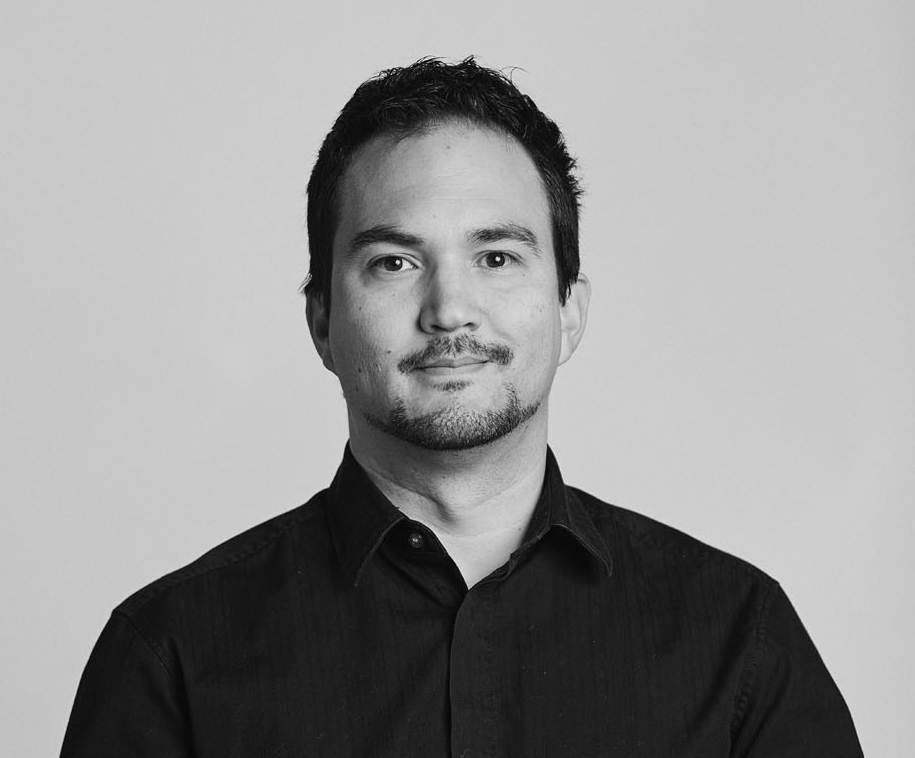
David Dubois is currently the head of business development for the research
industry at Kinova. He holds a bachelor of electrical engineering degree
(2007), a master's degree (2010) and a Ph. D. (2014) of automated
production engineering all from École de technologie supérieure. He is a
member of Ordre des ingénieurs du Québec, IEEE and SPIE and presented his
work in numerous international conferences from these and other
organizations. Since February 2018, he is also an active member of the
Canadian SMC for the ISO IEC JTC 1 SC 42 - Artificial intelligence
standardization effort. He was recently nominated as external liaison
officer from ISO IEC JTC 1 SC 42 to ISO TC 299 - Robotics.
His research interests include computed vision, artificial intelligence,
process automation, service robotics and human-robot collaboration. In the
past 5 years, he has started his own consulting company and worked for
cutting-edge businesses in those fields. He also volunteers as a mentor for
a high school Robotique FIRST Quebec team and as vice-president of the
board of Réseau ÉTS the alumni association of his Alma mater.
Abstract:
Without systematic and structured product innovation management, a company
is bound to fall behind the competition and lose its edge. In order to keep
up with the increasingly rapid pace of innovation,a well-defined innovation
roadmap is essential. In addition, constant evaluation of changing market
needs is required to identify key product differentiators and priorities.
This talk will describe Kinova’s journey from its founding to today,
relating to the technological breakthroughs that address various markets
close to our mission and values. It will also cover the key element in our
continuous evolution, the Kinova toolbox, which consists of our open
software and modular hardware that offer flexibility and adaptability so
our partners and clients can use our platforms to innovate at their pace,
to meet their specific needs
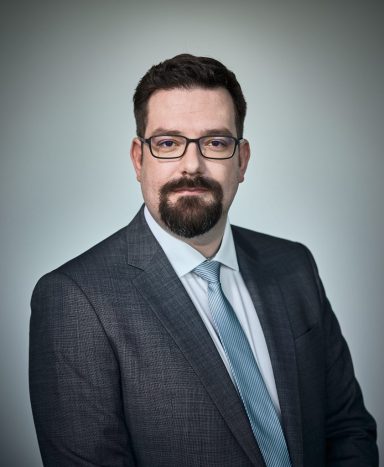
Dominik graduated with a diploma in Computer Science from the University of Augsburg and an MBA degree from the University of Pittsburgh. In addition to his career, he has constantly been lecturing at different universities, e.g. Munich Technical University (TUM), and is an author of technical and scientific publications. At TUM School of Education, he is researching „Technology, Robotic & AI Governance„: the ethical, moral, socio-cultural, -political and -economic implications of technologies, as robotics, automation and artificial intelligence on humankind.
Title:
Successful Consumer Robotics beyond Science Fiction
Abstract:
Developing a (Consumer) Robotics Product is not
easy. Most companies, at least in the domain of industrial
robotics, tend to rely on a Technology Push-based methodology.
They develope a product as good as they can, trying to include
their newest technological breakthroughs. When the product is
finished, they advertise and sell it based on its feature set and
competitive advantage. Unfortunately, this sometimes doesn’t
really take into account the desires and needs of (esp.) new
markets. Hence, we applied a Market Pull-based approach: Use
Case Driven Requirements Engineering (UCD-RE), starting
with the analysis of Megatrends to understand future market
developments. So far, no earlier evidence of such an approach
for the development of a robotics product could be found in
literature.
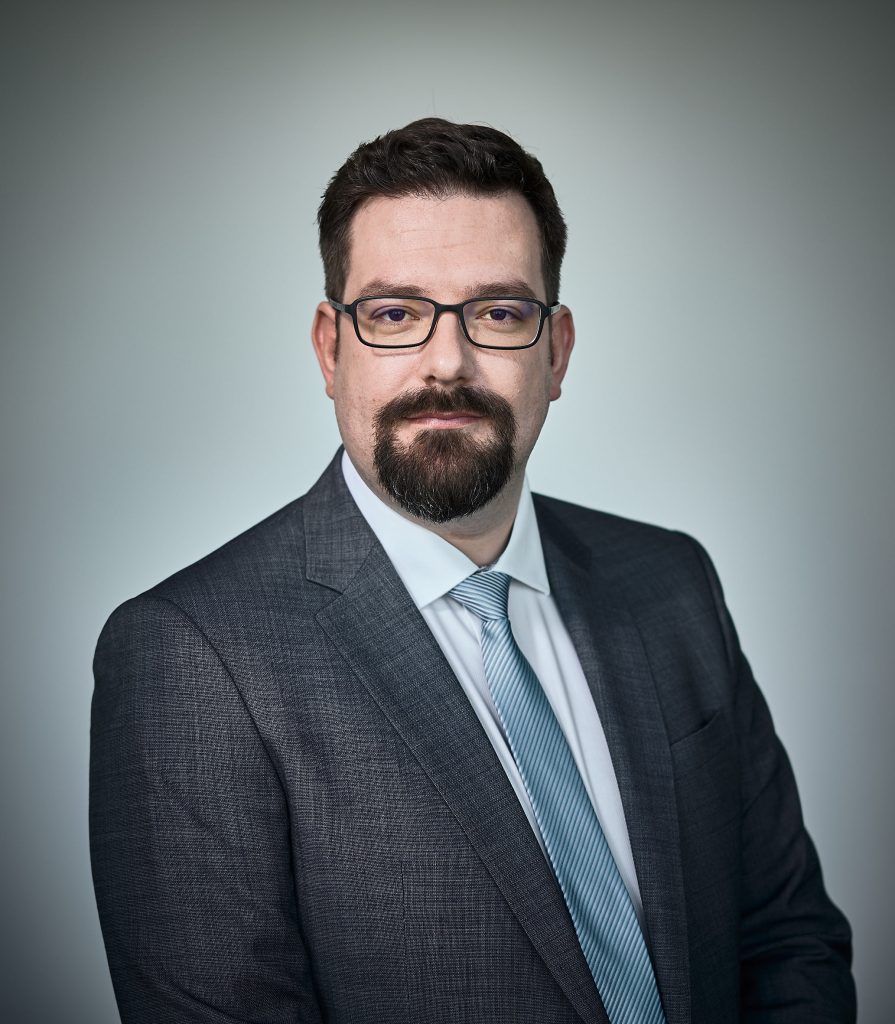
Dominik graduated with a diploma in Computer Science from the University of Augsburg and an MBA degree from the University of Pittsburgh. In addition to his career, he has constantly been lecturing at different universities, e.g. Munich Technical University (TUM), and is an author of technical and scientific publications. At TUM School of Education, he is researching „Technology, Robotic & AI Governance„: the ethical, moral, socio-cultural, -political and -economic implications of technologies, as robotics, automation and artificial intelligence on humankind.
Title:
Successful Consumer Robotics beyond Science Fiction
Abstract:
Developing a (Consumer) Robotics Product is not
easy. Most companies, at least in the domain of industrial
robotics, tend to rely on a Technology Push-based methodology.
They develope a product as good as they can, trying to include
their newest technological breakthroughs. When the product is
finished, they advertise and sell it based on its feature set and
competitive advantage. Unfortunately, this sometimes doesn’t
really take into account the desires and needs of (esp.) new
markets. Hence, we applied a Market Pull-based approach: Use
Case Driven Requirements Engineering (UCD-RE), starting
with the analysis of Megatrends to understand future market
developments. So far, no earlier evidence of such an approach
for the development of a robotics product could be found in
literature.
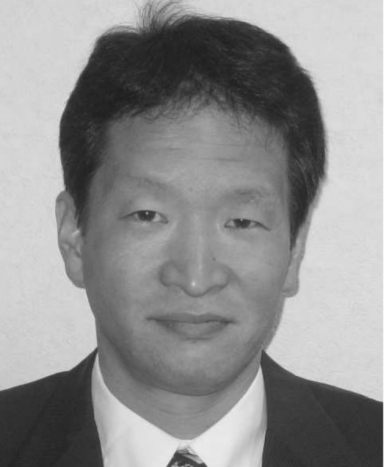
Hisashi Sugiura finished his bachelor and master degree at the University of Tsukuba in 1991 and 1993, respectively. Until 2015, he worked at Honda R&D Japan and Honda Research Institute Europe on the development of humanoid robots as well as the disaster robot for Fukushima. He received his PhD degree from Bielefeld University in 2010. Since 2017, he is a manager of Yanmar’s robotics group, focusing on the development of field robots.
Title:
Field Robotics and its challenges
Abstract:
Introduction of Yanmar’s agricultural and marine robotic development activities. Challenges for the realization of practical field robots in the respective domains will be discussed.
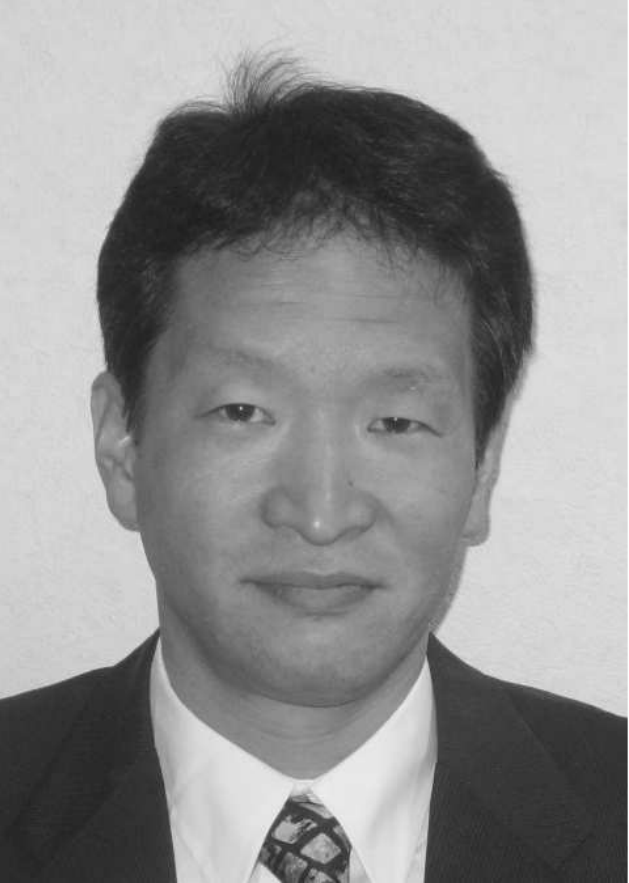
Hisashi Sugiura finished his bachelor and master degree at the University of Tsukuba in 1991 and 1993, respectively. Until 2015, he worked at Honda R&D Japan and Honda Research Institute Europe on the development of humanoid robots as well as the disaster robot for Fukushima. He received his PhD degree from Bielefeld University in 2010. Since 2017, he is a manager of Yanmar’s robotics group, focusing on the development of field robots.
Title:
Field Robotics and its challenges
Abstract:
Introduction of Yanmar’s agricultural and marine robotic development activities. Challenges for the realization of practical field robots in the respective domains will be discussed.
